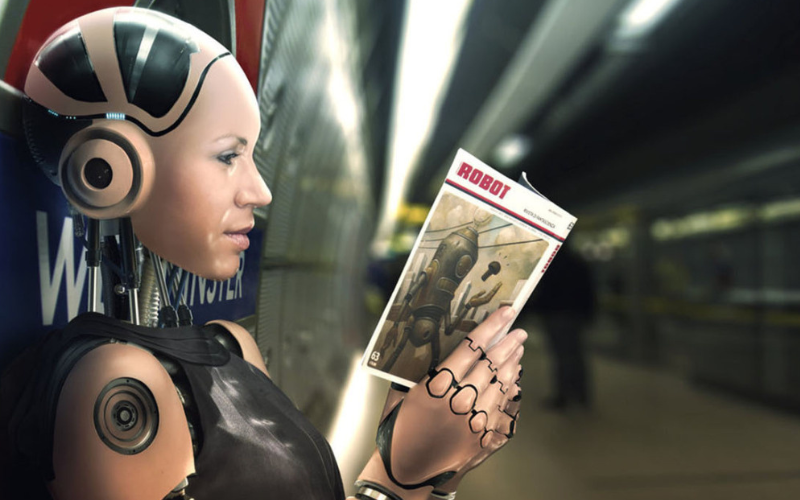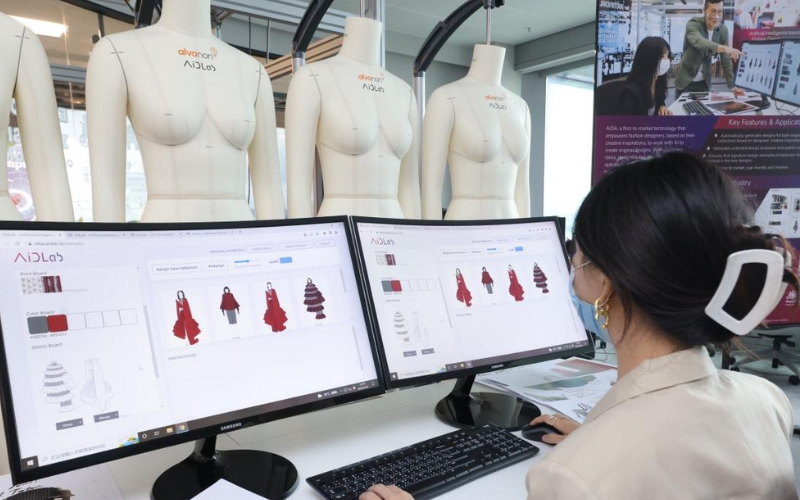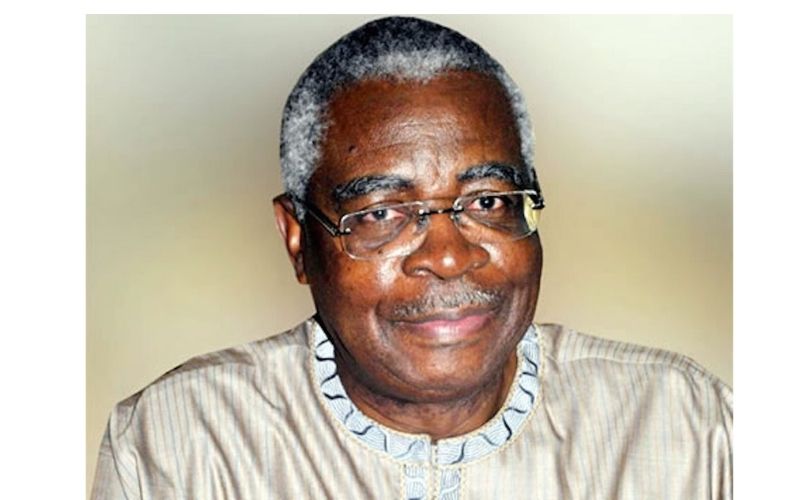Predicting the Future of Artificial Intelligence in Luxury

Artificial intelligence (AI) is poised to revolutionize the luxury sector, transforming everything from customer experience to product design.
The world of luxury is synonymous with exclusivity, craftsmanship, and a touch of the extraordinary built on a foundation of meticulous craftsmanship and attention to detail.
But in an age of ever-evolving technology, even the most time-honoured industries must adapt to stay ahead.
AI enters this world not as a disruptor, but as an enhancer of creativity and precision. It should be viewed as a tool that complements the human touch, offering insights and capabilities extending traditional luxury’s boundaries.
The AI Revolution is setting higher standards for consumer expectations, brand management, product development, and sales and marketing across various industries.
For luxury brands, this translates to a heightened level of distinction and prestige not only in their offerings and services but also in their overall company management.
In this competitive landscape, companies in the luxury sector must strategically position themselves to thoroughly comprehend, captivate, and involve their clientele. The consumption of luxury goods is heavily influenced by consumer attitudes and the pursuit of status and social approval.
Luxury retailers are already stepping up their game in personalized consumer interaction, leveraging technological advancements like chatbots (employed by Louis Vuitton, Burberry, Tommy Hilfiger, Dior, Estee Lauder), machine learning (utilized by L’Occitane), voice technology (adopted by Starbucks), and image recognition (deployed by Sephora and Nieman Marcus).
Augmented Reality (AR) Try-Before-You-Buy
For luxury goods, the tactile experience is paramount. Here, AI-powered AR bridges the gap between physical and digital realms. Imagine virtually trying on a designer dress in your living room or placing a high-end sofa in your space to see how it fits. This technology can not only enhance online shopping but also reduce the need for physical returns, streamlining the entire buying process.
AI-powered AR tools allow customers to try on products virtually, providing a safe and convenient shopping experience. Luxury brand like Dior have experimented with augmented reality (AR) try-ons for accessories, allowing customers to see how a product looks on them without physically trying it on.
Likewise, Nordstrom is also pioneering digital mirrors, which enable customers to try on an assortment of clothes and accessories via an AR mirror and tap into AI to showcase a selection of products and recommend accessories to the outfit.
AI-Powered Design and Production
Luxury has long been synonymous with exquisite craftsmanship, timeless elegance, and heritage. Yet, as the world embraces the digital age, the intersection of technology and luxury becomes increasingly captivating. Enter artificial intelligence (AI), poised to transform the landscape of luxury design and production in unprecedented ways.
One of the most intriguing developments in the fusion of AI and luxury is in design and production. While luxury has always celebrated the human touch and artisanal craftsmanship, AI brings a new dimension to creativity and efficiency. By harnessing the power of AI, designers can explore innovative materials, intricate patterns, and avant-garde silhouettes while staying true to the essence of their brand.
At the forefront of this revolution is the Hong Kong Laboratory for Artificial Intelligence in Design (Aidlab). In December 2022, Aidlab unveiled a groundbreaking showcase, the Fashion X AI show, where over 80 outfits from 14 designers graced the runway, all crafted with the assistance of artificial intelligence.
Central to this innovation is AiDA (AI-based Interactive Design Assistant), a revolutionary software accessible to designers worldwide that serves as a visionary companion for designers by streamlining the creative process without sacrificing authenticity.
Designers can upload their sketches, mood boards, and color palettes, and within seconds, AiDA generates original blueprints for their collections. This unprecedented speed not only accelerates production but also fuels creativity, allowing designers to iterate and refine their vision swiftly.
What sets AiDA apart is its designer-led approach, embodying a harmonious synergy between human ingenuity and technological prowess.
Unlike traditional AI tools, AiDA empowers designers to infuse their personal touch into every aspect of the design process. This seamless integration of AI augments rather than replaces human creativity, fostering a new era of collaborative innovation in luxury fashion.
Moreover, AiDA represents just the tip of the iceberg in artificial intelligence’s transformative potential for the luxury industry.
Other recent advancements in artificial intelligence, such as Chat GPT and Stable Diffusion, are reshaping the creative landscape, offering novel avenues for expression and experimentation.
AI in Counterfeit Detection: Protecting Brand Legacy
In the intricate world of luxury, where heritage and prestige reign supreme, the spectre of counterfeiting looms large.
For luxury brands, the battle against counterfeit products is not just about protecting profits—it’s about safeguarding their legacy and upholding the sanctity of their craftsmanship. In this perpetual tug-of-war between authenticity and imitation, artificial intelligence emerges as a formidable ally, wielding advanced technologies to preserve brand integrity and consumer trust.
At the forefront of this crusade is AI-powered image recognition, a cutting-edge tool that empowers luxury brands to distinguish genuine articles from counterfeit replicas with unprecedented accuracy.
Leveraging sophisticated algorithms, artificial intelligence analyzes minute details and subtle nuances, discerning the intricate patterns and unique characteristics that distinguish authentic craftsmanship from counterfeit copies. This technology not only bolsters brand protection efforts but also provides consumers with the assurance of authenticity, reinforcing their trust in the brand and its products.
Counterfeiting poses a multifaceted threat to the luxury market, eroding brand reputation, diluting exclusivity, and undermining consumer confidence. One solution to counter it is the integration of AI with blockchain technology, using transparent authentication systems.
The Ethics of AI in Luxury
The integration of artificial intelligence in the luxury sector also raises questions about ethical usage of data garnered. At the heart of this lies transparency and customer trust—cornerstones of the luxury experience that must be preserved at all costs.
While artificial intelligence holds immense promise in enhancing efficiency and personalization, luxury brands must tread carefully, ensuring that its implementation is guided by principles of responsibility and respect for consumer privacy.
Transparency emerges as a linchpin in the ethical deployment of AI within luxury. Brands must be forthcoming about the use of AI technologies, ensuring that consumers are informed and empowered to make informed decisions about their data. Moreover, transparency extends to the algorithms themselves, with brands disclosing the inner workings of AI systems to mitigate concerns of bias and discrimination.
While consumer data fuels AI-driven personalization, brands must exercise caution in the collection and utilization of this data. Past purchases may be fair game, but leveraging information such as browsing behaviour, store visits, and audio captures raises ethical red flags. Luxury brands must navigate these murky waters with care, respecting consumer boundaries and safeguarding their privacy at all costs.
AI-powered Storytelling and Brand Building

Photo: ExtremeTech
Luxury extends far beyond mere products—it’s about the enchanting narrative woven around them. At the heart of this narrative lies the essence of the brand—its heritage, craftsmanship, and values.
Artificial intelligence offers luxury brands a powerful tool to craft compelling narratives that resonate deeply with their audience.
Also, through AI-powered chatbots, brands can engage customers in immersive and interactive conversations, inviting them on a journey through the brand’s storied past and visionary future. These virtual companions serve as custodians of the brand’s legacy, offering insights into its rich heritage and the meticulous craftsmanship that sets it apart.
What sets AI-powered storytelling apart is its ability to adapt and evolve in real-time, tailoring the narrative to each customer’s preferences and interests. Through sophisticated algorithms, artificial intelligence analyzes vast amounts of data to uncover insights into consumer behavior and this eases the delivery of customer-centric storytelling experiences that resonate on a profound level.
Conclusion: A Symbiotic Future
In conclusion, the future of AI in luxury is not about a battle between technology and tradition, but rather a harmonious fusion of the two—a symbiotic relationship that elevates the luxury experience to new heights.
Artificial intelligence catalyzes innovation, enabling brands to deliver personalized, efficient, and data-driven experiences that resonate with discerning customers.
However, amidst the promise of AI, one thing remains certain: the human touch will always be at the heart of luxury.
From the intricate design process to the meticulous craftsmanship and the unparalleled customer service, human expertise is the soul of the luxury experience.
While AI augments and enhances various aspects of the industry, it should be noted that the human element imbues luxury with its timeless allure and emotional resonance.
As AI continues to evolve, luxury brands that embrace this technology with a human-centric approach will be the ones to thrive in the ever-changing landscape of the industry because they have creatively leveraged artificial intelligence to complement and amplify human creativity and expertise, these brands will shape the future of luxury, ensuring their place in the hearts and wardrobes of discerning customers for years to come.art


























